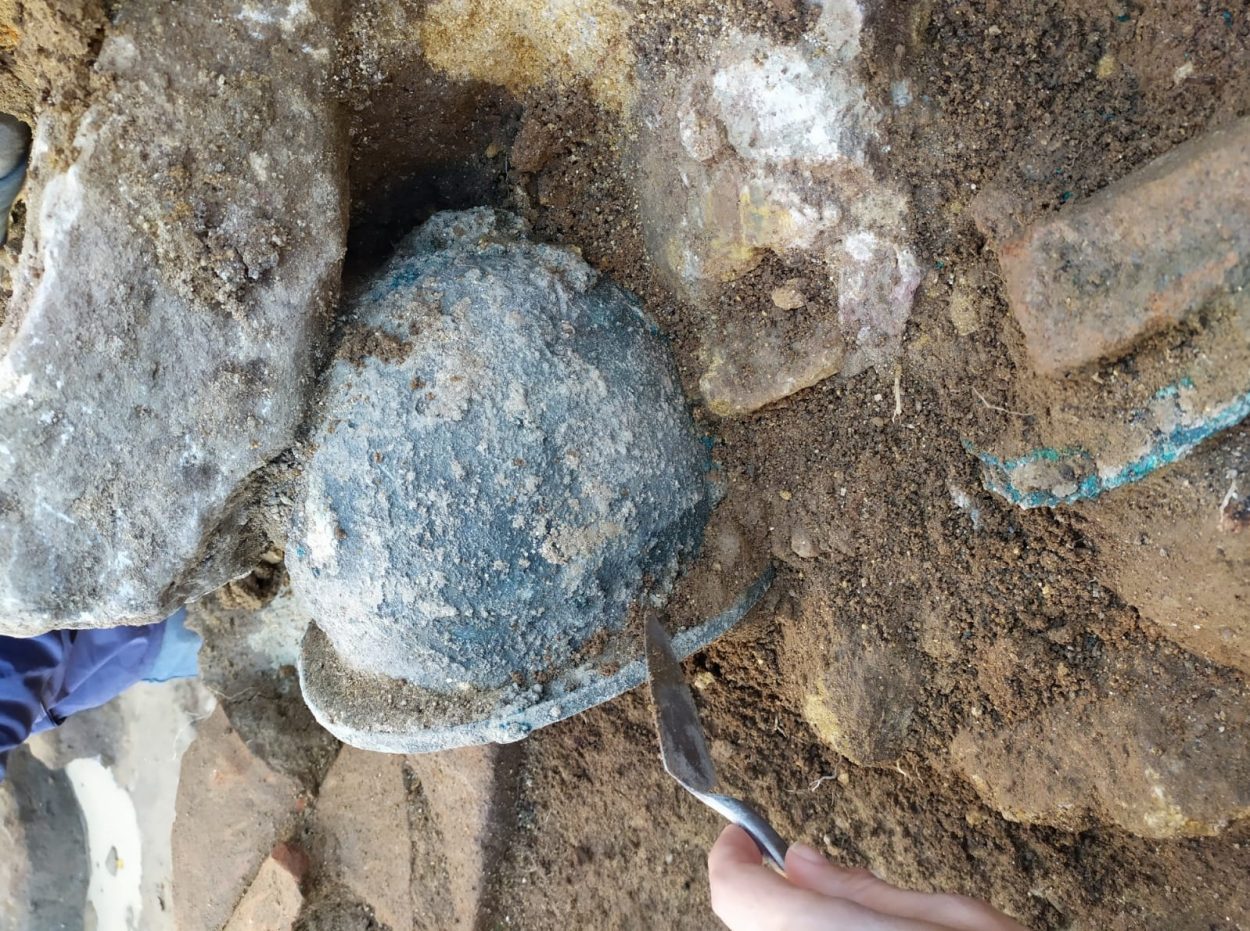Archaeologists excavating the Acropolis of Elea-Velia in the Cilento region of Italy have uncovered ancient helmets alongside archaic ruins.
Elea-Velia was founded by Greeks from Phocaea during the 6th century BC, emerging as a major centre in the Roman region of Magna Graecia during the 3rd century BC.
Excavations were conducted under the direction of Gabriel Zuchtriegel to determine the organisation of structures within the Acropolis and their chronology.
The researchers focused on the highest terrace of the western tip, where they uncovered the existence of an archaic sacred building from around 540-530 BC that measures 18 metres long by 7 metres wide.
The structure is paved with a beaten earth floor and tiles, on which archaeologists found painted ceramics and inscribed vases, along with a number of metal fragments and pieces of weapons and armour.

Amongst the remains are two helmets, one of the Chalcidian type which was common amongst Hellenistic soldiers in the Greek (southern) parts of Italy, and a Negau type helmet that is of a typical Etruscan ‘vetulonic’ shape.
Massimo Osanna , Director General of the Museums and Avocant Director of the
Archaeological Park of Paestum and Velia said: “The archaeological finds at the Acropolis of Elea-Velia suggest a sacred destination of the structure. In all likelihood, the relics found were offered to the goddess Athena after the Battle of Alalia (a naval battle that took place between 540 BC and 535 BC off the coast of Corsica between Greeks and the allied Etruscans and Carthaginians).”
ARCHAEOLOGICAL PARK OF PAESTUM
Header Image Credit : Parco Archeologico Paestum





